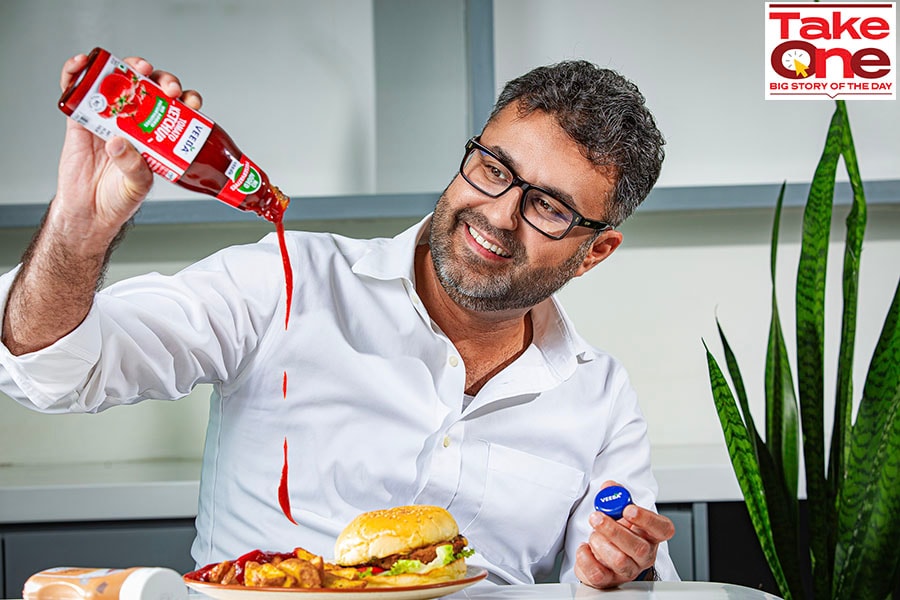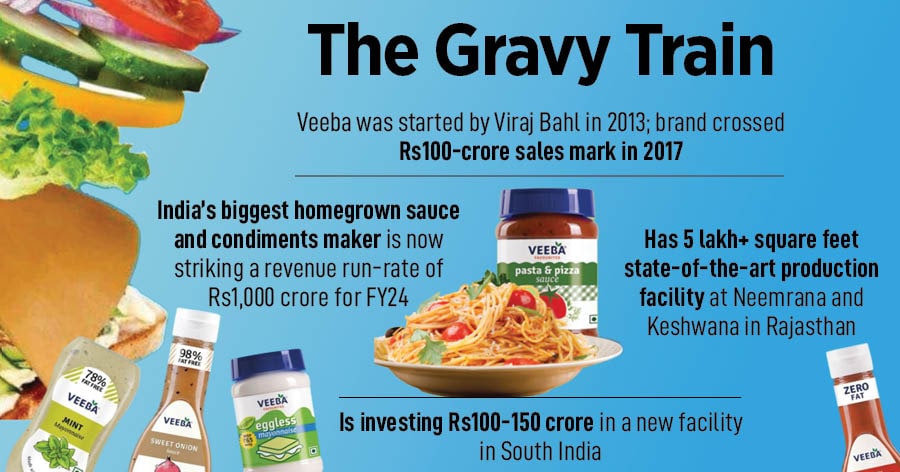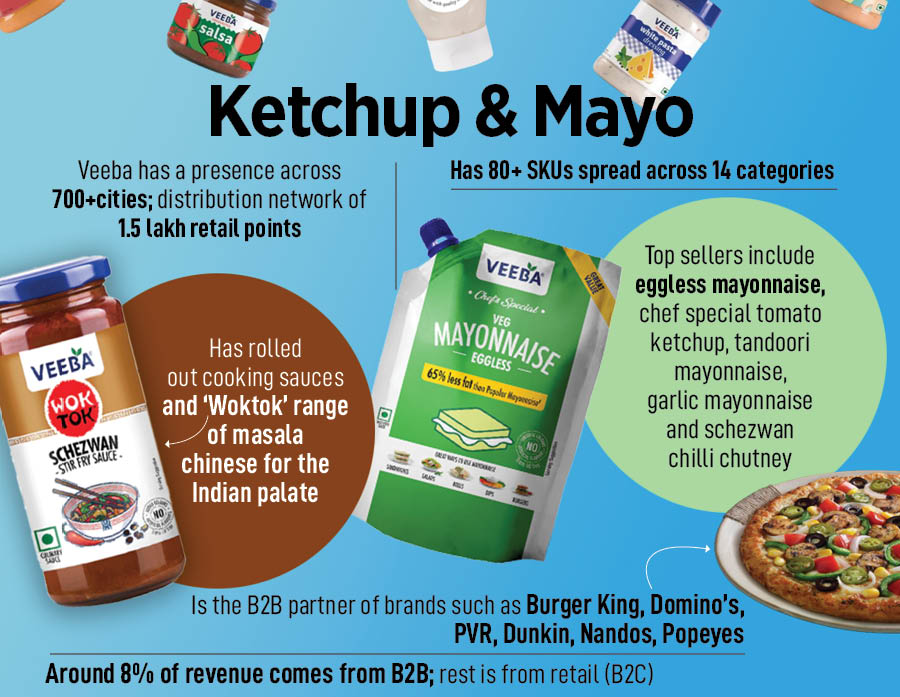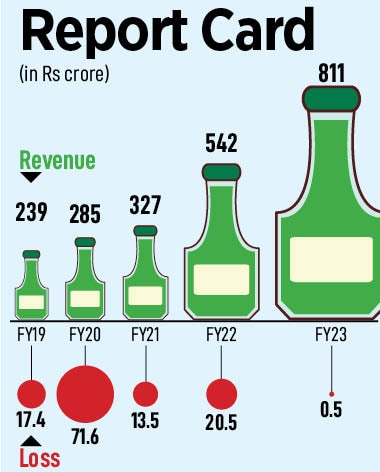
Appetite, food and hunger: Is there more to Veeba's secret sauce?
A failed restaurant business, a disastrous comeback debut and an unenviable task of punching above his weight, Viraj Bahl fought many odds to make Veeba India's biggest homegrown sauce and condiments' brand. Can he now make it a consumer goods company?
 Viraj Bahl, founder and MD, Veeba Food Services, condiments and sauce maker. Image: Madhu Kapparath
Viraj Bahl, founder and MD, Veeba Food Services, condiments and sauce maker. Image: Madhu Kapparath
New Delhi, 2013. “Restaurants are quite a naked business,” says Viraj Bahl. “If they stay empty, you become a public failure.” In 2013, Bahl felt naked, and was a proclaimed failure. After little over four years of struggling with the food business, the second-generation entrepreneur lost his appetite for restaurants, and shut down all the six outlets of Pocket Full. “It was a wonderful brand and concept,” recalls Bahl, who had been enamoured by the food processing venture of his parents and expressed his desire to join the family business when he was in class XI.
The patriarch, though, put a stiff and almost improbable pre-requisite. “Feel free to join when you start earning Rs3 lakh per month,” he said. The intent was to dissuade the young lad. Remember, underlined his father, the amount earned must be sufficient to raise your family in the same comforts and standard in which you have been raised. The seventeen year old, however, earnestly picked up the gauntlet. In the 90s, it was nothing less than a fantasy for an undergrad to even dream of earning lakhs in salary.
So Bahl joined a Singapore-based merchant navy firm, continued his studies amidst ferries, tankers, and containers, and self-funded his long-distance correspondence education from the job that he was pursuing simultaneously. By 2002, he was earning Rs3 lakh per month, thanks to his exceptional performance, which led to a couple of out-of-the-turn promotions. His father kept his promise, and the 22-year-old joined Fun Foods—the family business of manufacturing and marketing processed foods such as oriental salads, mayonnaise, pizza toppings and spices—in 2002. Over the next six years, the company made heady progress.
Then came 2008, and the cookie crumbled. “Please don’t sell the company,” the son pleaded. Fun Foods was to be acquired by German packaged food company Dr Oetker for Rs110 crore. For a Rs28-crore company that was started in 1983 by husband-wife duo of Rajiv and Vibha Bahl, getting an almost four times’ return was nothing less than spectacular.







 In 2015, lady luck smiled on Bahl. He was having lunch with Shahdadpuri at a restaurant in South Delhi. The investor started the conversation. “You are not doing anything wrong,” he tried to explain to the founder who was under tremendous stress. “Your problem is money.” He took a tissue paper lying on the table, scribbled a few lines and numbers, took the consent of the struggling founder and wired a cheque of $1 million in 24 hours. “It was a contract signed on a tissue paper,” recalls Bahl, adding that the bridge round of funding was the last time Veeba raised money from a position of distress. Three years later, in 2018, Veeba reportedly raised $6 million from Verlinvest, a private Belgian family investment company, and existing investors such as DSG and Saama Capital. By FY19, the company managed to take its operating revenue to Rs239 crore, and had a loss of Rs17.4 crore.
In 2015, lady luck smiled on Bahl. He was having lunch with Shahdadpuri at a restaurant in South Delhi. The investor started the conversation. “You are not doing anything wrong,” he tried to explain to the founder who was under tremendous stress. “Your problem is money.” He took a tissue paper lying on the table, scribbled a few lines and numbers, took the consent of the struggling founder and wired a cheque of $1 million in 24 hours. “It was a contract signed on a tissue paper,” recalls Bahl, adding that the bridge round of funding was the last time Veeba raised money from a position of distress. Three years later, in 2018, Veeba reportedly raised $6 million from Verlinvest, a private Belgian family investment company, and existing investors such as DSG and Saama Capital. By FY19, the company managed to take its operating revenue to Rs239 crore, and had a loss of Rs17.4 crore.




